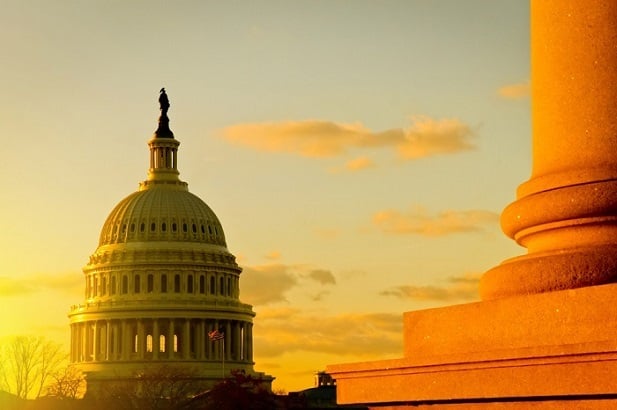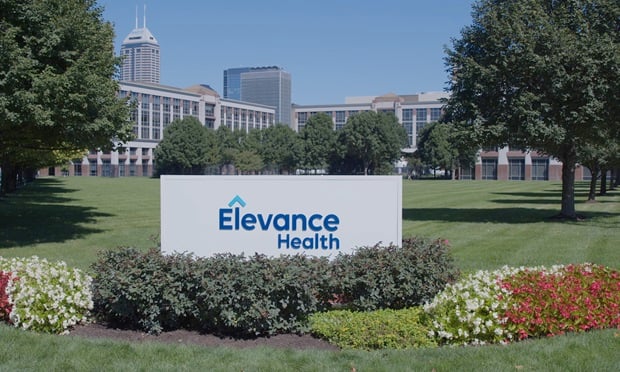 Passage of the SECURE Act in the House comes after years of concerted lobbying from retirement plan service providers, trade organizations, and consumer advocates. (Photo: Shutterstock)
Passage of the SECURE Act in the House comes after years of concerted lobbying from retirement plan service providers, trade organizations, and consumer advocates. (Photo: Shutterstock)
The most sweeping retirement legislation in more than a decade passed today out of the U.S. House of Representatives by a 417 to 3 vote.
The SECURE Act's vast provisions include relaxed regulation of Open Multiple Employer Plans, new tax incentives for small businesses to sponsor retirement plans, a long-awaited annuity selection safe harbor for sponsors of retirement plans, the extension of the required minimum distribution age for qualified retirement plans, and the removal of the age cap on contributions to traditional IRAs.
“This is a providential day,” said Rep. Mike Kelly, R-PA, during the floor debate preceding the vote, referring to the bipartisan effort to advance the SECURE Act in House Ways and Means Committee.
“It's a great bill, not just a good bill,” said Rep. Danny Davis, D-IL.
Despite the overwhelming support for the bill, the morning's debate was not without controversy. Earlier in the week, House leadership stripped a provision of the bill that would allow 529 savings accounts to cover early, middle, and high school education costs, including costs for private education and home schooling.
Rep. Kevin Brady, R-TX, accused special interests—namely, teachers' unions—of blocking the expanded 529 provision “for no good reason.”
“Back door deals made in the dead of night are not the way to do business,” said Brady.
|A long, concerted push from retirement services industry
Passage of the SECURE Act in the House comes after years—a decade with respect to some of the bill's provisions—of concerted lobbying from retirement plan service providers, trade organizations, and consumer advocates.
“The bipartisan Secure Act is the most significant legislation aimed at bolstering America's retirement system in more than a decade, and it provides for much-needed access to workplace retirement plans, improved retirement savings, and guaranteed retirement income that cannot be outlived,” said Phil Waldeck, president of Prudential Retirement, in a statement. “To keep this momentum going, we strongly urge the Senate to move swiftly on retirement security and pass this important legislation.”
“The SECURE Act is an important first step to address the retirement 'coverage gap' which disproportionately affects small business workers,” said Dave Gray, head of workplace retirement solutions for Fidelity Investments.
“Common-sense changes in the SECURE Act eliminate barriers for smaller employers to band together in a multiple employer plan for the benefit of achieving economies of scale. We believe enacting this legislation will deliver low cost, high quality solutions for millions of small business workers,” added Gray.
“Just last week, nearly 600 NAIFA members met with more than 90 percent of congressional offices during NAIFA's Congressional Conference and urged lawmakers to vote for the bill. It's always satisfying to see results from our grassroots advocacy be realized so quickly,” said Kevin Mayeux, CEO of the National Association of Insurance and Financial Advisors.
“This legislation will contribute to increased access to retirement plans at small businesses – helping the 58 percent of workers who do not currently have access to a retirement plan that work for a small business,” said Sri Reddy, senior vice president at Principal, and chair of the ERISA Advisory Council.
“We are advocates of the multiple employer plan, which will offset retirement plan set-up costs, lowering barriers to entry for the employers who say they do not offer plans because of financial cost or lack of organizational resources,” added Reddy.
In the Senate, the ground is being laid for consideration of the Retirement Enhancement Savings Act, a bill comparable to the SECURE Act. Industry sources expect the upper chamber will take up a consolidated version of both bills, perhaps before Congress recesses for the summer.
“We're moving past talk to action on retirement security now,” said Susan Neely, president and CEO of the American Council of Life Insurers. “This overwhelming and bipartisan vote in the House provides tremendous momentum for Senate consideration of RESA.”
Analysis by the Joint Committee on Taxation shows the SECURE Act would add $389 million to the federal deficit over the 10-year budget window.
Open MEPs would allow unaffiliated businesses to pool employees and retirement assets under one defined contribution plan. Industry service providers could be the fiduciary sponsors of MEPs, along with trade organizations.
Individual employers that participate in MEPs would retain fiduciary obligations to select and monitor MEP sponsors. But the fiduciary obligation to selecting investments would fall to MEP sponsors.
The Open MEP provision of the bill is its second most expensive—JCT projects it would add $3.42 billion to the federal budget over 10 years, as more workers enroll in tax deferred savings programs.
The provision increasing the RMD on qualified retirement plans from 70 ½ to 72 would add $8.86 billion to the federal debt.
Repealing the age cap on traditional IRA contributions would add $130 million to the country's debt over 10 years. Extending retirement plan participation to more part-time workers would add another $769.
The bill raises $15.7 billion over 10 years by eliminating the so-called Stretch IRA. Under the SECURE Act, distributions from inherited retirement accounts will have to be completed within 10 years, with the exception of accounts bequeathed to spouses, children, or disabled beneficiaries.
As was the case on the House floor, support for the SECURE Act in industry is effectively unanimous.
“Congress has done a great service to American retirement savers by voting for the SECURE Act,” said Ed Murphy, president and CEO of Empower. “It's exciting that retirement policy has garnered bipartisan support from Reps. Richard Neal, D-MA., chairman of the Ways & Means Committee, and Kevin Brady, R-TX., the committee's ranking member, who understand the importance of helping American workers save for retirement.”
“The next stop is the Senate, where we hope these reforms move quickly,” added Murphy.
Complete your profile to continue reading and get FREE access to BenefitsPRO, part of your ALM digital membership.
Your access to unlimited BenefitsPRO content isn’t changing.
Once you are an ALM digital member, you’ll receive:
- Breaking benefits news and analysis, on-site and via our newsletters and custom alerts
- Educational webcasts, white papers, and ebooks from industry thought leaders
- Critical converage of the property casualty insurance and financial advisory markets on our other ALM sites, PropertyCasualty360 and ThinkAdvisor
Already have an account? Sign In Now
© 2024 ALM Global, LLC, All Rights Reserved. Request academic re-use from www.copyright.com. All other uses, submit a request to [email protected]. For more information visit Asset & Logo Licensing.








